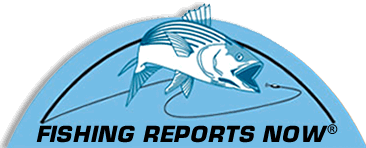NMFS Cuts Budget for Fish Surveys
From Tom Fote in the March issue of the Jersey Coast Anglers Association's newsletter:
NMFS -- It Just Keeps Getting Worse
With every administration I hope for positive changes in the National Marine Fisheries Service (NMFS). Once again, I am disappointed. The new head of National Oceanic & Atmospheric Agency (NOAA), Dr. Lubchenco, has made decisions that show her lack of understanding about this nation’s fisheries and the management of those fisheries. These poor decisions are compounded by decisions made at the regional level.
First, we need to consider the proposed budget for NMFS. I was in Washington at the ASMFC meeting when I received this proposed budget. I knew the proposed budget would have no increase. What I didn’t know is that Dr. Lubchenco would find money for her personal agenda at the expense of science, stock assessment and the needs of the recreational and commercial industries and the fishing communities. Both commercial and recreational groups have been working for an increase in funding for stock assessment, data gathering, observer coverage and science. We all agree that the fatal flaw in the management process is the poor science due to lack of accurate information on stock assessment and recreational catch numbers. What we got is a reduction in all the programs that would give us good science.
There is no increase in the budget, so the $33 million increase for the Catch Shares Program comes from existing science and data gathering programs. For example, they are proposing to take $6 million from cooperative research and transfer it to the Catch Shares Program. They also transfer $11.4 million from fisheries research and management to the Catch Shares Program. This does not fund the entire $36.6 million increase. They also cut observers by $3,015,000 and “other activities that are supporting fisheries science” by $30 million, but don’t say specifically where it will go. I was first contacted by the Marine Fish Conservation Network and PEW about their concerns with this budget. PEW has indicated they will fight these budget cuts in Congress. I also talked to our legislators and other recreational and commercial groups and their outrage in nearly unanimous. I think it is the first time that I heard almost all the groups on the same page in the last couple of years. I imagine the Environmental Defense Fund (where Dr. Lubchenco was on the board) will be pleased with this budget since they have been working for catch shares programs.
Catch shares are a management tool. That is all they are. They are designed to reduce the number of recreational anglers and commercial fishermen. Those of us with any experience in fisheries management recognize that good science needs to be the priority and no additional management tools should be put in place until that science is available. This is a step backwards and we can only hope that Congress will not allow this budget nightmare. No stimulus money went for fisheries! Catch shares will reduce the number of jobs available. That is anti-stimulus. You need to contact your Senators and Congressmen and ask them to do whatever it takes to change the priorities in this budget.
Second, the Marine Recreational Fishery Statistical Survey (MRFSS) is generating even less confidence than in the past, something I find hard to believe is possible. Many of the problems we are having with black sea bass, summer flounder, and scup are directly related to poor stock assessment. When ASMFC and the MAFMC met in December, we didn’t have wave 5 data. NMFS indicated that data was simply slow in coming. But NMFS managed to take emergency action to shut down the black sea bass fishery using the missing data and surrogate projections. At the February ASMFC meeting I expected to have access to the recreational catch numbers for 2009 so we could use that information to make informed management decisions. When I asked for the figures, I was told we still didn’t have access to the September/October wave 5 data. We were told we would have to use surrogate numbers to determine the conservation equivalency for summer flounder and the coast-wide regulations on black sea bass. When I asked the Northeast Regional Director why this data was not available, I was told that they had new contractors and there were problems getting the information. We were told to use 2008 data and a very precautionary approach.
In 2002 NMFS had a similar problem with a new contractor and NMFS eventually fired that contractor. They used surrogate numbers for the entire 2002 without informing ASMFC and MAFMC that they were estimated numbers. That created serious problems for New York and other states since we made management decisions based on these numbers.
To make sure this would not happen again, I asked the Northeast Regional Director if we would have to use estimated data for the entire year as we did in 2002 or if there was a different problem. I was astounded with the answer. I was told that MRFSS was not my job! Since when are commissioners denied information or brushed off in that arrogant manner. As a commissioner I attend many public hearings. When a member of the public asks for information I do not have, I attempt to get that information quickly and respond to their concerns. I guarantee if this was a commercial statistical data problem, the Regional Director would have gotten the information before attending the meeting. Since she has little respect for recreational concerns, particularly at the Mid-Atlantic region, she felt no responsibility to provide that information to us or attempt to get the information and make it available before the 4 days of meetings ended. And they wonder why nobody trusts them!
Lastly, NMFS representatives to ASMFC have always been pro-commercial and have always pushed for an increase in the harvest of striped bass. NMFS doesn’t control the harvest of striped bass since there is a moratorium on harvesting striped bass in federal waters. Right now there is a Presidential Executive Order that states that if striped bass is opened in the EEZ it will be for recreational fishing only and the states should be looking at making striped bass a recreational only catch. I guess NMFS and the US Fish and Wildlife Service likes to ignore executive orders. They were the deciding votes in proposing an amendment to increase the commercial fishery of striped bass in state waters. Over the years I have watched the US Fish and Wildlife Service and NMFS vote on allocation issues and frequently cast the deciding vote. This allows them to interfere in what should be state decisions and impose their agenda on the states.
For years, JCAA has written many letters to the President and Congress complaining about this intrusion. Going back to the early 90’s, as a commissioner I have made motions to deal with this problem to make them non-voting members. I have been unsuccessful since state directors are afraid of NMFS checkbook. Even though state directors dislike their votes, they are unwilling to take a stand. Sometimes those votes have been favorable to my point of view, but I still contend they have no business voting on allocation battles for the states. If they have a vote at all, it should only be on science- related issues. Their current push for catch shares simply makes NMFS and the US Fish and Wildlife Service more determined than ever to maintain their votes on allocation issues.
Despite all the bad news, there is a bit of good news. Eric Schwabb has been appointed to run NMFS. His experience is impressive and is included in the press release below. When Eric was Maryland’s commissioner to ASMFC, we worked together. We stayed in contact as he held other positions. I respect his knowledge of fisheries management and recreational issues. As a former state director and resource director for the Association of Fish and Wildlife Agencies, he understands the problems the states confront. The Association of Fish and Wildlife Agencies represent all 50 states so Eric’s experience is impressive. I have always found Eric willing to discuss different points of view with an open mind. We hope we now have a director at NMFS who will be a voice of reason. With his experience, he can provide the leadership necessary to shift NMFS priorities to good science first.





